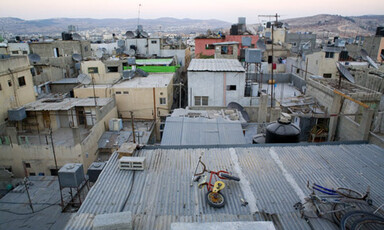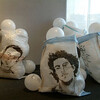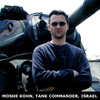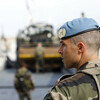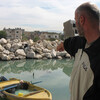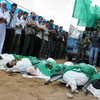
Twenty-eight Palestinians killed this week in OPT
21 October 2006
This week, 28 Palestinians, 17 of whom, including two children and a woman, are civilians, were killed by IOF. Each of the two children was killed together with the father of each. Six of the victims were extra-judicially executed by IOF in three separate attacks. Forty-five Palestinians, including 14 children, IOF have continued to launch air strikes on houses and civilian facilities in the Gaza Strip; five houses were destroyed and a number of others were severely damaged. IOF conducted 30 incursions into Palestinian communities in the West Bank, and six others into the Gaza Strip. IOF arrested 48 Palestinian civilians, including seven children, in the West Bank, and eight others in the Gaza Strip. Read more about Twenty-eight Palestinians killed this week in OPT
